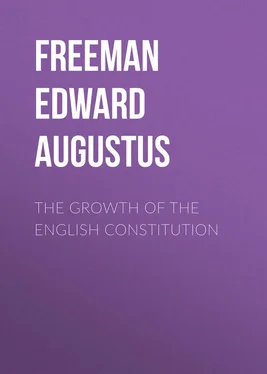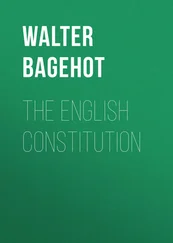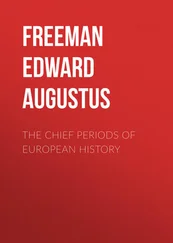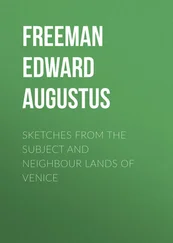Edward Freeman - The Growth of the English Constitution
Здесь есть возможность читать онлайн «Edward Freeman - The Growth of the English Constitution» — ознакомительный отрывок электронной книги совершенно бесплатно, а после прочтения отрывка купить полную версию. В некоторых случаях можно слушать аудио, скачать через торрент в формате fb2 и присутствует краткое содержание. Жанр: foreign_antique, foreign_prose, на английском языке. Описание произведения, (предисловие) а так же отзывы посетителей доступны на портале библиотеки ЛибКат.
- Название:The Growth of the English Constitution
- Автор:
- Жанр:
- Год:неизвестен
- ISBN:нет данных
- Рейтинг книги:5 / 5. Голосов: 1
-
Избранное:Добавить в избранное
- Отзывы:
-
Ваша оценка:
- 100
- 1
- 2
- 3
- 4
- 5
The Growth of the English Constitution: краткое содержание, описание и аннотация
Предлагаем к чтению аннотацию, описание, краткое содержание или предисловие (зависит от того, что написал сам автор книги «The Growth of the English Constitution»). Если вы не нашли необходимую информацию о книге — напишите в комментариях, мы постараемся отыскать её.
The Growth of the English Constitution — читать онлайн ознакомительный отрывок
Ниже представлен текст книги, разбитый по страницам. Система сохранения места последней прочитанной страницы, позволяет с удобством читать онлайн бесплатно книгу «The Growth of the English Constitution», без необходимости каждый раз заново искать на чём Вы остановились. Поставьте закладку, и сможете в любой момент перейти на страницу, на которой закончили чтение.
Интервал:
Закладка:
Edward A. Freeman
The Growth of the English Constitution / From the Earliest Times
The proverb “ qui s’excuse s’accuse ” is so regularly turned against any author who gives any account of the origin of his work that it may be well to prevent its quotation by quoting it oneself. I have to ask that these three Chapters and their accompanying Notes may not be judged by the standard of a book. If I were to write a book on the English Constitution, it would be different in form and, in many points, different in style. What the reader has here is a somewhat extended form of two Lectures given at Leeds and Bradford last January. I had thought that they might be worth printing in the shape of two magazine-*papers; others thought that they might do good in their present shape. I therefore expanded the latter part of the second Lecture, which had to be cut very short in delivery, so as to make a third Chapter, and I added such notes and references as seemed to be needed.
I say all this, in order that what I have now written may be judged by the standard of lectures, not by the standard of a book. In a popular lecture it is impossible to deal with everything with which it is desirable to deal; it is impossible to go to the bottom of those things which one picks out to deal with. It is enough – because it is all that can be done – if the choice of subjects is fairly well made, and if the treatment of those that are chosen, though necessarily inadequate, is accurate as far as it goes. Many things must be left out altogether; many things must be treated very imperfectly; the attention of the hearers must be caught by putting some things in a more highly wrought shape than one would choose at another time. The object is gained, if the lecturer awakens in his hearers a real interest in the subject on which he speaks, and if he sends them to the proper sources of more minute knowledge. If I can in this way send every one who wishes to understand the early institutions of his country to the great work of Professor Stubbs – none the less great because it lies in an amazingly small compass – my own work will be effectually done. In Mr. Stubbs’ “Documents Illustrative of English History,” the ordinary student will find all that he can want to learn; while he who means to write a book, or to carry out his studies in a more minute way, will find the best of guidance towards so doing. The great documents of early English history, hitherto scattered far and wide, are now for the first time brought together, and their bearing is expounded in a continuous narrative worthy of the unerring learning and critical power of the first of living scholars.
For my own part, my object has been to show that the earliest institutions of England and of other Teutonic lands are not mere matters of curious speculation, but matters closely connected with our present political being. I wish to show that, in many things, our earliest institutions come more nearly home to us, and that they have more in common with our present political state, than the institutions of intermediate ages which at first sight seem to have much more in common with our own. As the continuity of our national life is to many so hard a lesson to master, so the continuity of our political life, and the way in which we have so often fallen back on the very earliest principles of our race, is a lesson which many find specially hard. But the holders of Liberal principles in modern politics need never shrink from tracing up our political history to its earliest beginnings. As far at least as our race is concerned, freedom is everywhere older than bondage; we may add that toleration is older than intolerance. Our ancient history is the possession of the Liberal, who, as being ever ready to reform, is the true Conservative, not of the self-styled Conservative who, by refusing to reform, does all he can to bring on destruction. One special point on which I have dwelt is the way in which our constitutional history has been perverted at the hands of lawyers. It is perfectly true that the history of England must be studied in the Statute-Book, but it must be in a Statute-Book which begins at no point later than the Dooms of Æthelberht.
As I have often had need to take facts and doctrines for granted which I believe myself to have proved in my larger works, I have in the Notes given frequent references to those works, instead of bringing in the evidence for the same things over again. And in the more modern part of the subject, I have given several extracts at full length, even from very familiar authors, because I know that a reader is often well pleased to have a striking passage set before him at once, without having to seek for it in the original. On the other hand, I have given at full length several extracts from statutes and other documents which most readers are not likely to have at hand. The historical portions of any Act of Parliament can be studied only in the Acts themselves, and not in the summaries of lawyers. Legal writers and speakers seem constantly to repeat what has been said before them, without any reference to the original sources. A memorable example is to be found in the assertion of Blackstone and of a crowd of lawyers after him, in Parliament and out of Parliament, that the King or Queen is by Law Head of the Church. I need hardly say that that title was used by Henry, Edward, and Mary, but that it was given up by Mary, and was not taken up again by any later Sovereign.
Somerleaze, Wells,
March 25, 1872 .
In this Second Edition I have made a few verbal corrections and improvements, and I have made two or three additions to the Notes. Otherwise the book is unchanged.
Somerleaze, Wells,
October 30, 1872 .
CHAPTER I
Year by year, on certain spots among the dales and the mountain-sides of Switzerland, the traveller who is daring enough to wander out of beaten tracks and to make his journey at unusual seasons may look on a sight such as no other corner of the earth can any longer set before him. He may there gaze and feel, what none can feel but those who have seen with their own eyes, what none can feel in its fulness more than once in a lifetime, the thrill of looking for the first time face to face on freedom in its purest and most ancient form. He is there in a land where the oldest institutions of our race, institutions which may be traced up to the earliest times of which history or legend gives us any glimmering, still live on in their primæval freshness. He is in a land where an immemorial freedom, a freedom only less eternal than the rocks that guard it, puts to shame the boasted antiquity of kingly dynasties, which, by its side, seem but as innovations of yesterday. There, year by year, on some bright morning of the spring-tide, the Sovereign People, not entrusting its rights to a few of its own number, but discharging them itself in the majesty of its corporate person, meets in the open market-place or in the green meadow at the mountain’s foot, to frame the laws to which it yields obedience as its own work, to choose the rulers whom it can afford to greet with reverence as drawing their commission from itself. Such a sight there are but few Englishmen who have seen; to be among those few I reckon among the highest privileges of my life. Let me ask you to follow me in spirit to the very home and birth-place of freedom, to the land where we need not myth and fable to add aught to the fresh and gladdening feeling with which we for the first time tread the soil and drink in the air of the immemorial democracy of Uri 1. It is one of the opening days of May; it is the morning of Sunday; for men there deem that the better the day the better the deed; they deem that the Creator cannot be more truly honoured than in using, in His fear and in His presence, the highest of the gifts which He has bestowed on man.
Читать дальшеИнтервал:
Закладка:
Похожие книги на «The Growth of the English Constitution»
Представляем Вашему вниманию похожие книги на «The Growth of the English Constitution» списком для выбора. Мы отобрали схожую по названию и смыслу литературу в надежде предоставить читателям больше вариантов отыскать новые, интересные, ещё непрочитанные произведения.
Обсуждение, отзывы о книге «The Growth of the English Constitution» и просто собственные мнения читателей. Оставьте ваши комментарии, напишите, что Вы думаете о произведении, его смысле или главных героях. Укажите что конкретно понравилось, а что нет, и почему Вы так считаете.












